A profitable martial arts open day can position you for a successful year. Darryl Thornton from Shukokai Karate shares how.
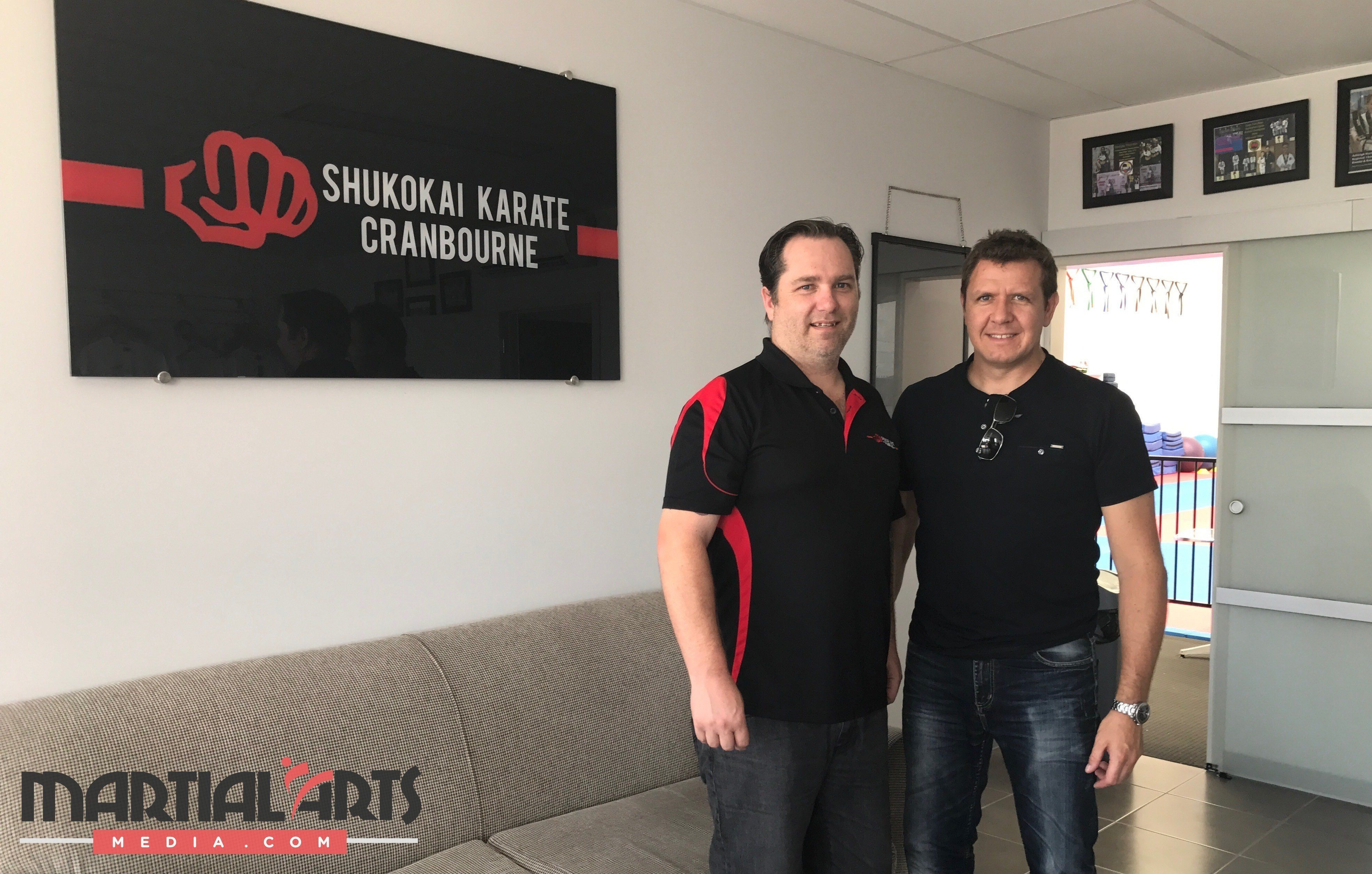
IN THIS EPISODE, YOU WILL LEARN:
- Why you can and should run your open day for one hour
- The secret to presenting an offer (a common discussion on the Martial Arts Media Business Podcast)
- Getting your existing martial arts students involved as a unit
- Can you handle 20, 30, 50 or 70+ new students right now? Here's how to prepare
- This simple technique can attract those extra members that didn't get to join on the day
- The importance of studying martial arts with other cultures
- And more
*Need help growing your martial arts school? Learn More Here.
TRANSCRIPTION
I think it's important, one of the people, so the only reason he came back was because of the email.
Hi, this is George Fourie and welcome to the Martial Arts Media business podcast, episode number 26. I am finally back with a few interviews and I've got four awesome interviews lined up for you. I just did a trip to Melbourne and met up with a few great school owners. Learned a lot, got a lot of advice from different perspectives, different ways of doing things and I'm going to bring it all to you. So lots of gold and information just shared, I will probably do a recap of all this after all of the interviews, so look out for that. But for now, I just want to bring you the interviews, just as they are.
For a change, it wasn't a Skype or a phone call type interview, it was face to face, so it was great to have the different live dynamics of these interviews and you're going to get a lot of value from this. We've got a lot of great information to share and today I have on the show with me Darryl Thornton from Shukokai Karate in Cranbourne in Melbourne area. And Darryl has great success with his open days and I guess you can rather call it an open hour, rather than an open day, because they only run it from 12 to 1 and all the energy is focused on that one hour, instead of multiple hours or five hours, where everybody's energy is scattered and high and low and everybody's walking in at a different time, so much easier to manage one hour.
It is the pride and joy of all his students, they all want to be a part of it and everybody's energy is high for that one hour. And of course, he presents an exclusive offer and the process which he's going to outline for you has generated 70 students for them on the day and an additional 19 afterward. So Darryl is going to give you all the insights and everything of that. So, I'm going to jump into this episode.
Now, the transcripts and show notes and everything else that you need are available as always on martialartsmedia.com/26, and that's it from me – hope you enjoy this interview, it was awesome, I'm sure you're going to get great value from this. Pease welcome to the show Darryl Thornton from Shukokai Karate.
GEORGE: Good day all. Today I'm with Darryl Thornton. Now, I'm sitting and for a change, it’s not a Skype interview, I'm sitting in front of him at Shukokai Karate in Cranbourne Melbourne. And Darryl is the state coach for Karate Victoria, state coaching director for Karate Victoria and Darryl has had very good success with his open days. So today I'm going to be asking questions about his process, his recent success with it and we're going to have a bit of a chat, so welcome to the show.
DARRYL: Thank you, thank you.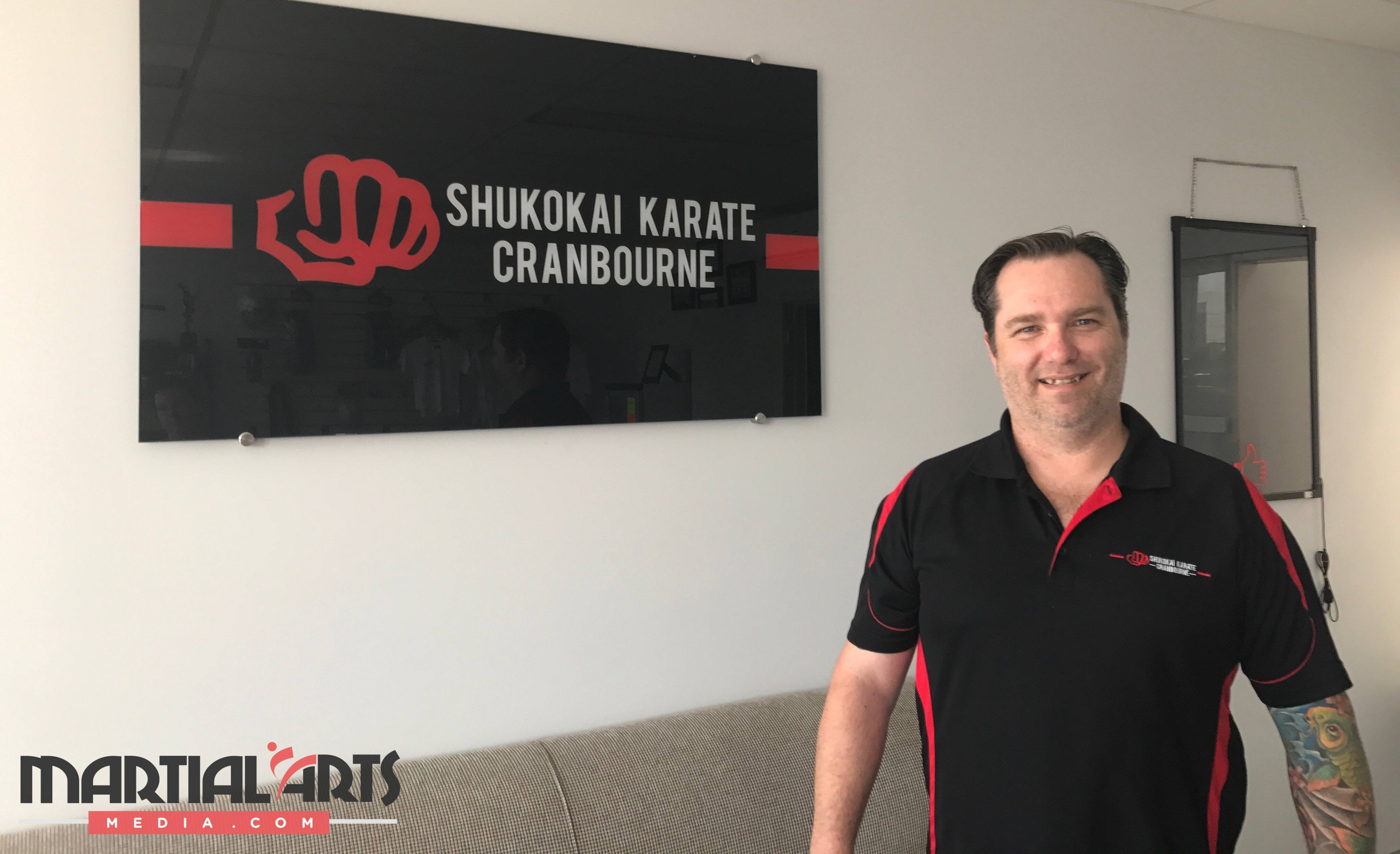 GEORGE: Cool. So first and foremost, before we get into everything – who is Darryl Thornton?
GEORGE: Cool. So first and foremost, before we get into everything – who is Darryl Thornton?
DARRYL: Well, that's a big open question. Well, I'm a dad, so I've got two children, 16-year-old twins. I’m a karate coach, first and foremost I think, it’s my main job. I've been teaching karate for quite a few years now, have my club in Cranbourne as George said. We've been growing quite steadily over the last few years and we've now got to a point where we've got our own building and were going ahead really well, so we are very happy with where we are at the moment, but there's always room for more growth. Hopefully, George is helping me out with that!
GEORGE: Yeah, for sure. All right, cool, so let’s just go back to now, depending on when you're listening to this, at the moment, beginning of the year, which is always a booming time for all martial arts schools, and Darryl just had a very successful open day – can you give us a few details on that?
DARRYL: So we run an open day on the first weekend after school goes back. It’s a really important time for parents, when they're looking to put their children in the activities for the year, so we capitalize on that. I'm promoting our open day on the first Saturday after school goes back. And we have ours on a Saturday around midday, so just around lunch time.
We find that people often have things to do in the afternoon and mornings, and midday is the ultimate time, also because of the weather. Every year for the last three, it’s been around 40 degrees, so we have it at 12 being much lighter in the day, then it would be too hot, because you have people sitting around in your Dojo for over an hour, you don't want them sitting there and baking for too long.
GEORGE: So an hour?
DARRYL: An hour. Just over an hour. The actual open day itself goes for an hour, but then, with people signing up and for the volume of people that are in the place, it takes probably another 20-30 minutes to get them out the door. We try to capitalize on a smaller timeframe, because it’s short and sharp and people go, it’s just an hour a day, it’s not a big part of their day. And also they know that they have to be there by a particular time. If you have an open day and it runs over the whole day, people don't know what time they should be there, what time the demonstrations are on and you can't maximize the impact. If you have it spread over such a big period of time.
GEORGE: That's awesome, I like that, because I see a lot of people doing the open day and it's sort of a half day or something, but just the whole psychology of having an event – and it’s really just focused on that one specific time, and obviously, it gives you guys the opportunity to really put all your energy into that one hour, because that's all you've got.
DARRYL: Yeah, it's much easier to get your members there for that one hour too, versus, trying to get them there for the whole day, or half the day. We had a pretty good turnout, probably with our membership, we would've had 30 of our teen adults group probably, maybe the same in our juniors, which is our 7-12-year-old group. Our little ninjas, which is our youngest group, 3-6 year olds, they're probably the hardest ones to get here, but the ones that were here, they were really good, they were really well received by the people.
We had a three-year-old in the group, white belt, brand new and the people loved it, they thought she was fantastic. And it’s a good opportunity for your members to also build their confidence and show their self-esteem. We had white belts in there, which I think for me is fantastic, because I open it to any member. Anyone is allowed to come along and be a part of the demonstration. I don't pick and choose who does it, I don't mind if they make mistakes during the demonstration, I think that's important, and if they do, that's part of learning.
GEORGE: All right, cool. So walk us through the dynamics, because you had a lot of success, you mentioned 70 members?
DARRYL: On the day, yeah, and 20 two days after. 90 people joined from the open day.
GEORGE: That's awesome.
DARRYL: Yeah, it’s a big number. It’s a lot to manage obviously afterward. It's a lot of data entry and then it’s a lot of new people on your mat and what we do is, we sell the membership on the day, all the trail as such. Then the first time they come, they get their uniform, so you have to be well organized as well. You need to, if you work, you probably need to have Monday off, because you have to go and pick up the uniforms, you have to get them to your Dojo, you have to sort them, write the new members names on them, so when they come in, it's easy to find, especially if you've got a big number, you don't want to be trying to find the right size and things like that.
So part of the open day when they join is we measure them for their uniform, write it on their form what size of uniform they're getting and then it’s easy to manage it when they come in. Of course, you're going to get the odd one or two that doesn't fit, so you have to have a bit of extra stock to make sure that you've got enough to cater for that, but we're pretty accurate on our measurements. We've got a measuring stick, like most Dojos probably do, use a bo staff with the sizes sort of marked on it, stand it next to the person and mark on what size of uniform they need.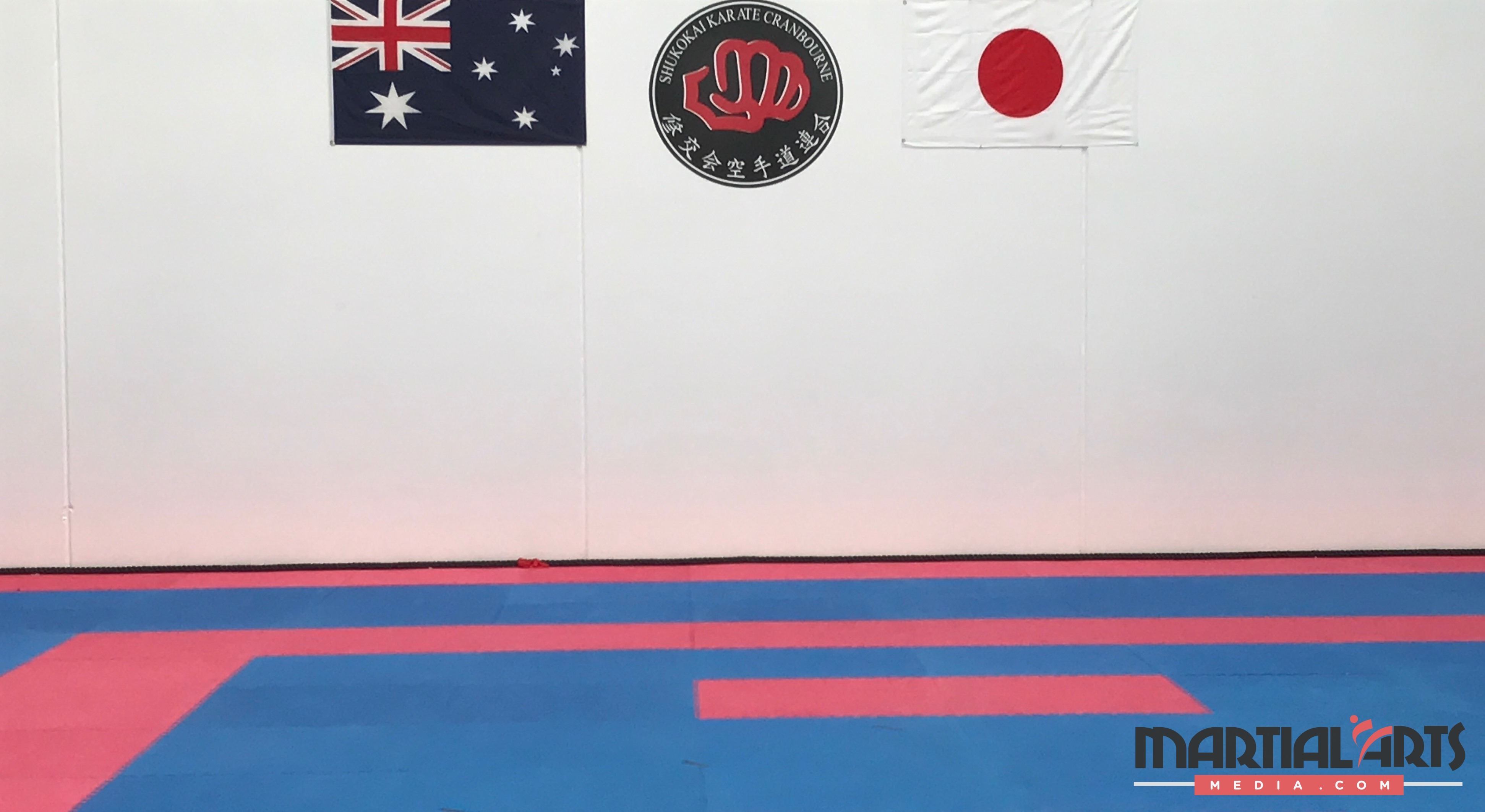 GEORGE: All right, so let’s look at the dynamics – what actually happens: people arrive at 12?
GEORGE: All right, so let’s look at the dynamics – what actually happens: people arrive at 12?
DARRYL: Mostly, they come in around about 12, we have probably 2 or 3 of our senior members, the ones who know more about the club than a white belt at the front door. So they might be in uniform, or in the club polo, whatever they choose to be. They'll welcome them, bring them into the club and ask them to come and sit around the perimeter of the training area, so they'll sit around the edge of the perimeter on the floor, and then what we do, because it's 37 degrees, I’ll get a couple of our younger members, most of our leadership group to go around and give them water, because it's hot and it’s a good way to welcome them as well, and make sure we're looking after them.
So once we get everybody in, we had a 130 people in the Dojo on Saturday, which is quite a few people to manage. We probably had 80-90 of our own people at the same time, so a couple of hundred people inside the Dojo is always good for the atmosphere. I start off by introducing myself and the club and explain a bit about what we are and where we are from and what we do and the benefits of what we do. And then we start off with some demonstrations and I make sure that our demonstrations are just our regular members, I think it’s very important. I remember going to a demonstration when I first started karate and I thought, geez, I'm never going to be able to do that, that looks way too hard, I can't do that.
So I will always be mindful of making sure that people understand that everyone can and we have children with special needs and all sorts of things, and they're also a part of the demonstration. Not that I particularly ask them to come long, but we particularly are an open club. We believe that everybody can do karate, so we've had a really good success with some children that have special needs and we've got one boy that has a functioning autism, but he's been with us for 5 years, and he's a part of the demonstration. I think that by having him, he encourages others that might think that it’s not right for them. We have members making mistakes during demonstrations and I think that's OK too, because you don't want everyone to be exactly perfect, because we're not, no one is always perfect, are they?
So we let everybody be involved, we don't mind mistakes. We don't coach before, so we don't pre-determine what they're going to do, it’s all on the five. I talk during the demonstration and one of my other senior instructors will take the demonstration. We do different groups, so we'll do our 3-6 year olds and they demonstrate, we get our juniors and then we do our adult teams. In between the groups coming on the mat, I talk about what we’re doing, why we’re doing it, what's important about the skills they're learning. I think we did four demonstrations per group, so each group did four different things.
They might have done some basics: some impact, some self-defense, and the little ones play the game, cause the little ones in our organization is a game sense program, so they played a game, which I think is good to show people that's it’s about fun as well, because I think that without the fun, kids are not going to come, they'll get bored really fast. And then, we interlace the regular members with our elite members.
We've got a few high level competitors and they did some demonstrations in between to show people that you can get from point A to point B through hard work and training and I think that shows people the true value of what the training is. And then at the end of it, I have an offer. So this year, our offer was four weeks of training and a uniform for $49, which is less than a half price of what it normally would be. And if they want to join, they just have to come out to the reception area and fill in one form, and that's it, they're done. And the first class they start, the uniform is ready for them to start training.
GEORGE: Excellent. So you make this offer to everybody at the same time, everybody that's in the room?
DARRYL: Everybody that's in the room. In front of everyone, I often would hold up a uniform and say, you get a uniform and four weeks of unlimited classes, so you can come as much as you'd like during the four weeks, for today only – this is the deal. You really need to put a timeframe – we talked about this with online things, but the timeframe is important. Making sure that people have got a trigger to buy. If you just say, this is the offer, people walk away and they'll think about it, but we want them to buy it on the day.
We also have some giveaways on the day, when we advertise, we often advertise a free sausage sizzle, giveaways, demonstrations – that's part of the whole process. We give away things like an impact shield, focus mitts, maybe a T-shirt or something like that and when they come in, we collect their name and their email address.
So what I do with that is, I send them a thank you email: thank you for coming to our open day, or thank you for joining, depending on whether they joined or not, and we actually had really good success from that this year, because we had 72 join on the day, and then, I sent the email out on Sunday to the people who didn't join to say, thanks for coming along, we appreciate your time, hope you enjoyed the demonstrations: if you didn't get an opportunity to join on Saturday, and you'd still like to join, we'll extend the offer for two days, just for you. However, if you've got any family members or friends that might like to join, please extend the offer to them. And from that, we had 19 turn up on Monday and Tuesday.
GEORGE: Awesome.
DARRYL: Yeah, which I was really pleased with, obviously.
GEORGE: Yes.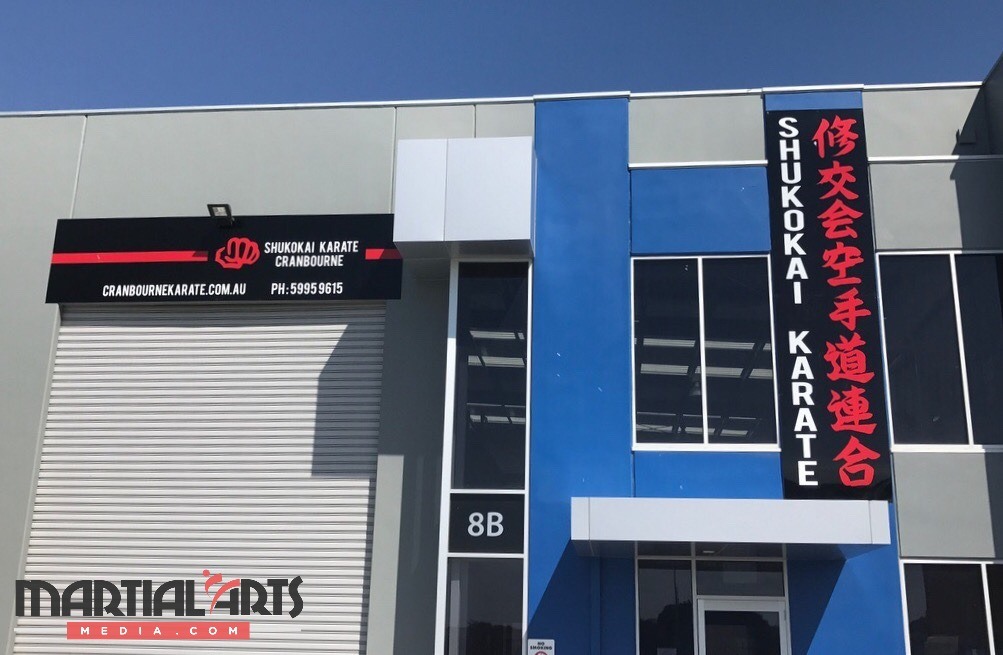 DARRYL: I think it’s important, one of the people that came in on Monday, Tuesday said the only reason he came back was because of the email. He felt that it was a real personal sort of touch, that he got an email that said, thank you for coming.
DARRYL: I think it’s important, one of the people that came in on Monday, Tuesday said the only reason he came back was because of the email. He felt that it was a real personal sort of touch, that he got an email that said, thank you for coming.
GEORGE: Yes, and I'm so glad you're saying that, because I know I've said this stuff many times, and sometimes I feel like I repeat it too much, but those are just such core elements, the deadline. If you could have the worst offer and just put a deadline on it, and it would be a better offer. It might not be a great offer, but people are going to respond to a deadline, otherwise there's no urgency to act now, it’s just a psychological trigger. And then personal emails: just sending out an email. And we do email marketing, we're always talking about the personal email that goes out from an individual to an individual, not, this and this karate…
DARRYL: No, no, I start it with…
GEORGE: …with a big colourful newsletter, because that screams company.
DARRYL: No, I just wrote my name, obviously, I had on the bottom of it Shukokai Karate Cranbourne, but it was from Darryl Thornton – it was not from Shukokai Karate Cranbourne, it was from me. And it was me personally, I would personally like to thank you for coming on the day, I hope you enjoyed what we did. I think it’s important.
GEORGE: Yes.
DARRYL: And even with the welcome letter, the welcome email, that is an automated email that we have set up through our student database, but it’s still personal, because it says their name, and it’s from me.
GEORGE: There you go, and they can reply to that?
DARRYL: Yes, they can reply.
GEORGE: And that is, I guess, something to take note of: it doesn't have to be a one on one email, because you can set up an automated email, as long as you or someone is monitoring it and they will actually reply.
DARRYL: I did get some replies from both the joining ones and the thank you ones for just coming on the day. So I actually got a couple of people respond, especially with the offer to extend it – is that just for children, or is it for adults too? It was just a question, so that in my mind I thought – well, maybe I'm not quite clear on the day that the offer was for everybody, we have adult members training, maybe we need to be clearer on that. So you learn all the time when you do them, it’s an evolving thing, marketing, as you well know. It changes daily, I think. You've got to be very mindful of it. I think even with the images you promote; you should probably make sure that you promote every group that you want.
GEORGE: Exactly.
DARRYL: If you're running multiple ads, maybe making sure that you've got different photos in each one and things like that, that would be important. Our flyer that we put out for our open day, that only has children on it, but that's our target audience really, and most of our adults, a good proportion of our adult membership is parents of children that train.
GEORGE: So, I guess we need to backtrack a bit, because, you got a 130 people in and 70 – well, 90 of them joined.
DARRYL: That's right.
GEORGE: That's 80% closing ratio.
DARRYL: Yes, I've done all the math.
GEORGE: So that's excellent in itself and again, the things that I see that are really working here is the deadline, focused energy – you've got one hour, and there's no scattered audience, there's no scattered message. It's, this is it, all these people are in this one presentation. But the key question I didn't ask is: how did you get the 130 people in?
DARRYL: Yes, that's important, isn't it? We did flyer marketing and online marketing, so we did both. I think it’s important to have both. I have a flyer that is a just an A5 size, so, glossy, shiny, with some photos of kids on it. We put out 30,000 flyers and they're delivered via pamphlet distribution, our catalogue distribution. And then we did four Facebook ads, so we did an event, and we promoted the event and that was OK, as far as the response we got from it, but by far the biggest response was my proof of my flyer as a photograph, just boosted, as an ad.
That was probably the best response we had on Facebook – the most comments, shares, likes, was of just that one photo. So I had that photo running three ads itself, the same photo, which you might tell me is the wrong thing to do, but I just wanted it to be in everybody's face all the time, so they had no doubt that our open day was on Saturday. And I think it proved itself that it worked, with the response we got.
GEORGE: I think it’s great. The boosted post definitely works, there's a place for everything, I guess when it’s done for the same thing all the time, for the same person, you can burn someone out.
DARRYL: Yeah, I agree.
GEORGE: But when you're doing an event…
DARRYL: It’s an event, it's a bit different. The advertising is always something that is a bit tricky, you never know – open days are funny, for me, I get really anxious and nervous about them in the day leading up to it, because it’s like putting out birthday invitations and not knowing if anybody’s going to turn out. But you've just got to trust yourself, because we have done them for a few years now, and they've always been successful. I've built my club around them really. There's always the other marketing that gets the regular numbers coming through the door, but the open day is a big event.
The members love it, they love coming to it, people that joined up said to me, I want to be part of it next year. And you go, wow, that's pretty cool, the people are already going, I want to be part of it, I want to be up there. I want to be that person. That's good, you know. The other thing I think I didn't mention is that, with the advertising, the timeframe is important too. The flyers need to be around ten days prior to event, they have to be delivered ten days before.
The Facebook advertising, I start a little bit earlier, maybe about a week earlier for the event, so it’s around about two weeks, or just outside two weeks that I start the event advertising and then I periodically added in photographs and things like that for the open day to keep promoting it, reminding people that it's coming up, it's only 24 hours away, 48 hours away, those type of thing as well.
GEORGE: All right, great. Now, a key question would be: firstly, there's one event a year.
DARRYL: Yeah, I don't have another one.
GEORGE: OK. And then, what is the retention? This is something someone always wants to know: you bring all these people in, how many of them stick?
DARRYL: You lose a few early, and there are no two ways about it. It’s like any paid trial. Karate or martial arts as a rule, is not for everybody and some of the kids come in, they see it, they go, I want to do that. And then when they try it, they don't really like it. But it’s not too many that do that, it’s a small percentage of that. We had really good success with last year’s open day with retention: I would say 50% would be retention, which I think for that type of event is a good number, because those people, that 50% become die-hard fans.
They're the ones that really support your club. They bring in the 50% you lose again, and then some. They bring in more again, and I think that it’s an interesting study of why they become real fans of your club. I guess because they see where you can end up. For me, the open day is a real big confidence thing for the members. It shows them, they see how much self-esteem they have and how much belief they have in what we do. It’s a real proud moment for an instructor when you've got your average members, just the ones that come and train twice a week, standing up there and showing their skills, I think it’s really, really important.
GEORGE: For sure, and it puts it into perspective.
DARRYL: Yeah, I think it does.
GEORGE: All right, awesome. Darryl, that's been great. Thanks for sharing.
DARRYL: You're welcome.
GEORGE: Thanks for sharing all the details, anything else you'd like to share, especially I know with your coaching side and the karate side?
DARRYL: No, not really. I guess we, if anyone's interested in what we do, we're at cranbournekarate.com.au, on Facebook we've got pretty good following on Facebook, which is Shukokai Karate Cranbourne. We're a pretty busy club, we've quite a few members, we've got sort of the A level players in the WKF group as well, so I think it’s great when you have a club that has multiple things going on at the same time. We’ll have members training in our Dojo on a Saturday, we’ll also have members training over in Footscray Victoria University, the part of the state team.
We might even on the same weekend have members training in Sydney in a national training camp. We can have people overseas competing, one time, we can have people competing locally at the same time – we have members traveling to Japan later in the year. Our junior group is traveling to Japan, which I think is going to be amazing, the kids are going to love getting the opportunity to train in Japan with our senseis.
And then at the end, they've got a tournament where they will be competing with the Japanese kids. And the cultural part I think is very important, that the kids get to meet people from other countries and they form lifelong bonds with other people, see other cultures, and it’s really, really important. Karate is important, but there's the other part that you can get a lot more from the martial art than just punching and kicking.
GEORGE: Definitely, understanding the culture and interacting with different cultures.
DARRYL: I know kids that are in their 20s now and they've got friends they've been seeing in Japan since they've been 12, so they're really close friends every time they catch up, they go and stay at their house. They do home stays, they come over here and do the same, so I think it’s really, really important. It’s good to be able to defend yourself and all that type of thing, and be able to punch and kick. But I think there's much more to what we do than just punching and kicking.
GEORGE: Cultural lifestyle.
DARRYL: I think that the punching and kicking are the side benefit of what we do, not the main benefit.
GEORGE: Awesome. Darryl – thanks a lot for your time, and I will chat to you soon.
DARRYL: Thank you.
GEORGE: Cheers!
And there you have it, event based marketing. There's going to be a theme that's going to jump out through these few episodes – pay attention to that. I think it's gold; I'm learning lots from it. There all these little things that just drive conversion, it helps, event-based marketing, it’s the easiest way to get people to action, because that is the only time they can take the action. I hope you got great value out of that.
As I mentioned, transcripts are available on martialartsmedia.com/26 and if you're getting great value from these shows, please go leave us some feedback on iTunes. I know it’s a bit clunky, but martialartsmedia.com/itunes and just follow the little button that shows up in iTunes and you can leave a review in there. A five-star review will be great to help us get some good publicity for the show.
So that's it, back again next week with another awesome interview and I will speak to you soon. Have a good week to you then – cheers!
*Need help growing your martial arts school? Learn More Here.
Enjoyed the show? Get more martial arts business tips when you subscribe on iTunes for iPhone or Stitcher Radio for Android devices.


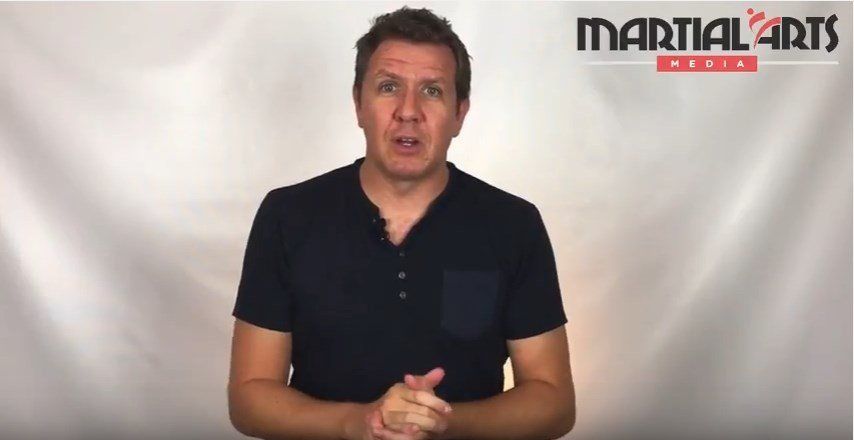
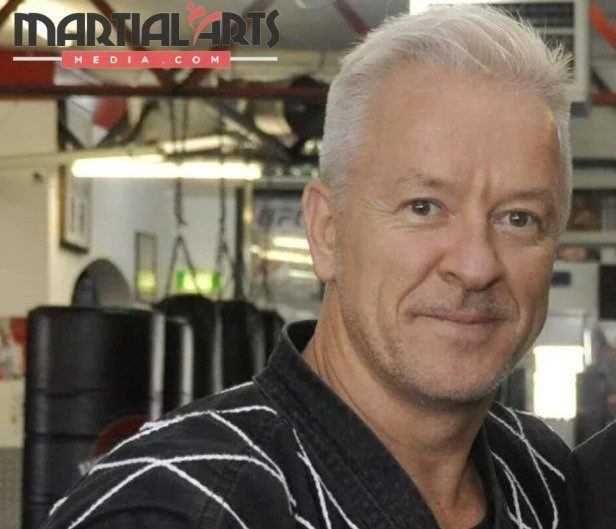

 FARI:
FARI:



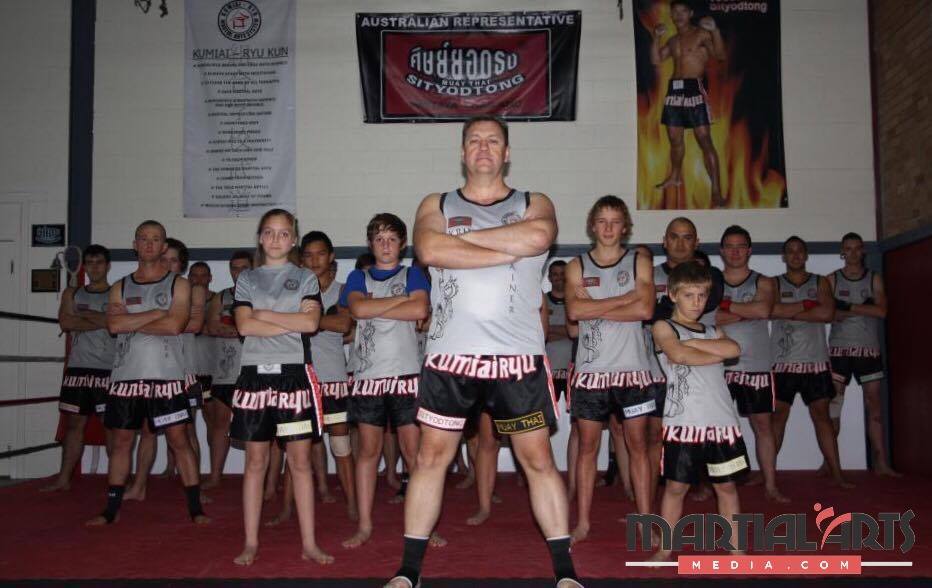
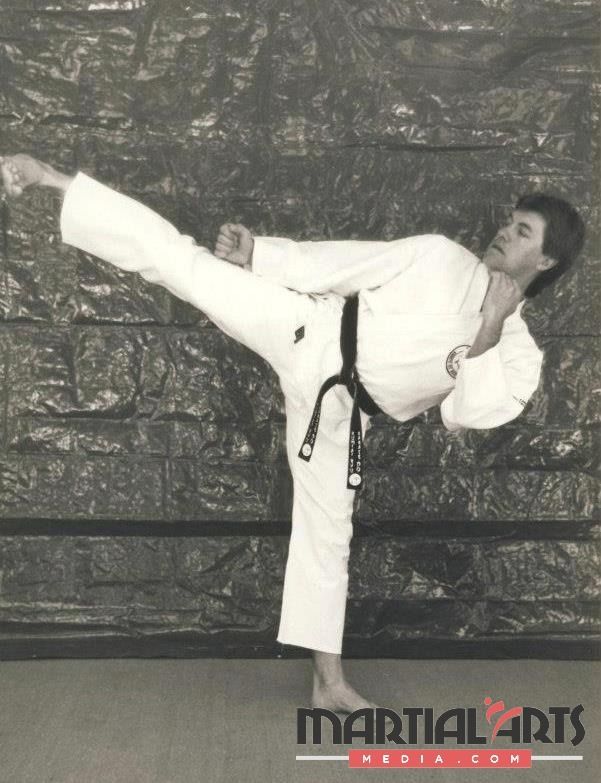 KEVIN:
KEVIN: 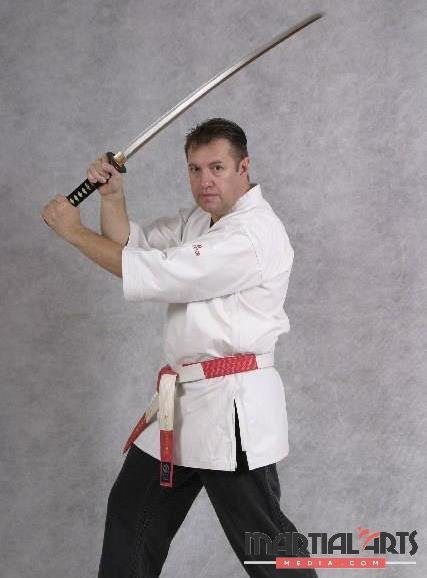 KEVIN:
KEVIN: 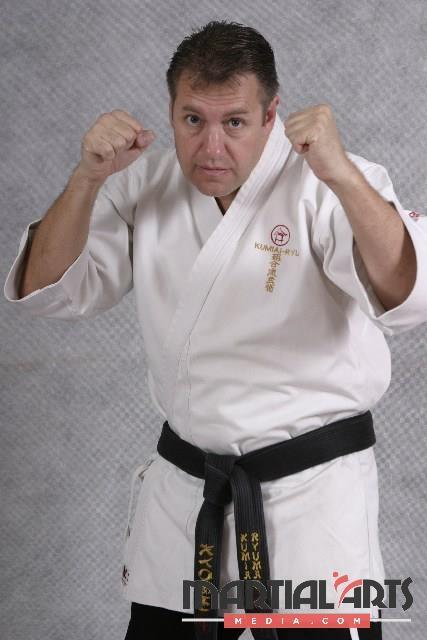 I've always been a firm believer in education and enhancement of martial arts instructors. I’m the senior vice president of the martial arts industry association, which provides an accreditation program. I’m also the New South Wales president of
I've always been a firm believer in education and enhancement of martial arts instructors. I’m the senior vice president of the martial arts industry association, which provides an accreditation program. I’m also the New South Wales president of 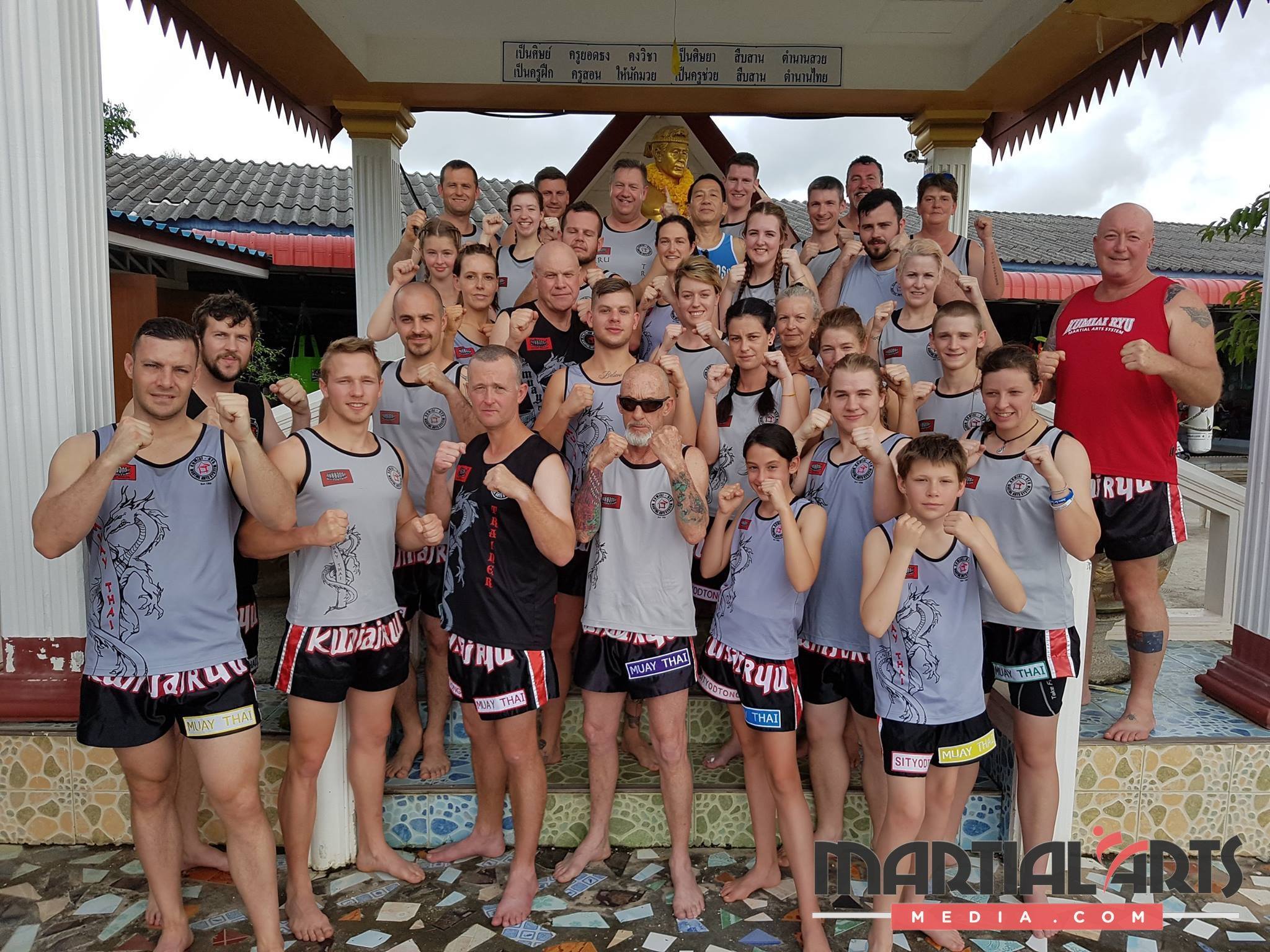 That's why it’s so important that you don't sell them anything and you make sure they fully understand the program. We talk a lot about things like there is going to be a time when you don’t feel like coming or your child won’t want to come so we have strategies to help them move past those phases. So it’s very important that people when they come to your organization, are very clear what they're getting. And don't oversell, OK? Here's a saying that's underselling, overdeliver and that's a really important thing.
That's why it’s so important that you don't sell them anything and you make sure they fully understand the program. We talk a lot about things like there is going to be a time when you don’t feel like coming or your child won’t want to come so we have strategies to help them move past those phases. So it’s very important that people when they come to your organization, are very clear what they're getting. And don't oversell, OK? Here's a saying that's underselling, overdeliver and that's a really important thing. 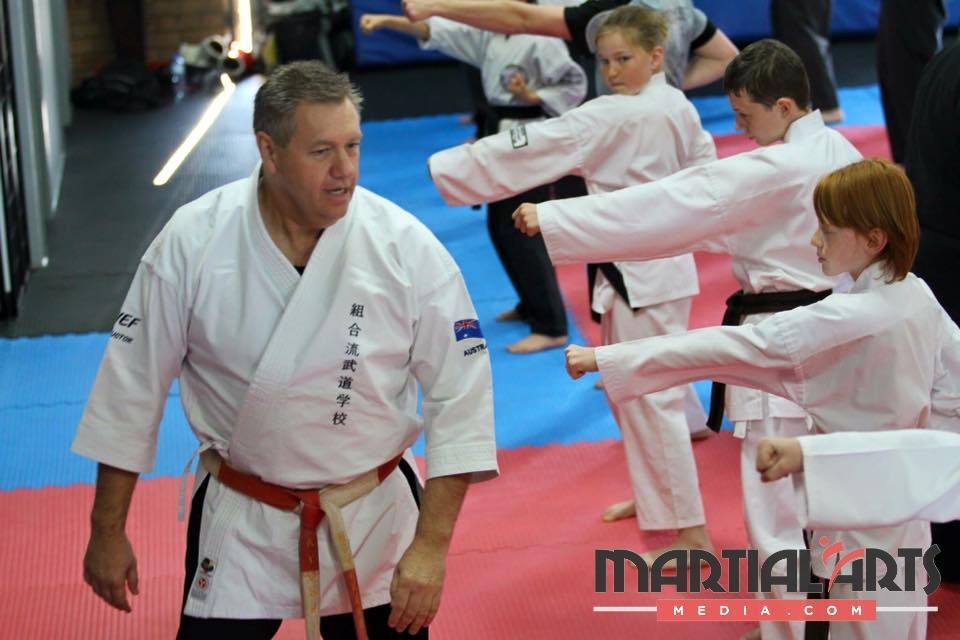 KEVIN:
KEVIN: 
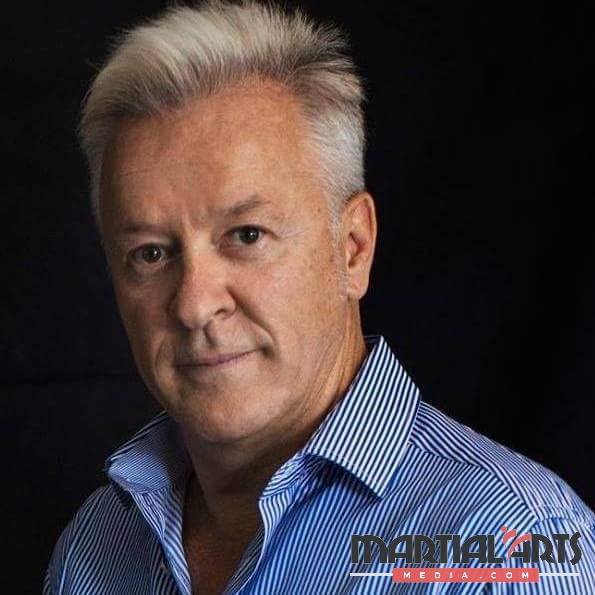 GEORGE:
GEORGE:  FARI:
FARI:  The goal is always to own your own home and have the stable income. But again, I think people are getting caught up too much with the hype and success has become different things. Ultimately, to me, it’s to be able to live a lifestyle teaching what you enjoy and not have the pressure, financial pressure to do that – to me, that's success, because you can’t beat peace of mind. I don't want to be looking at my next student as, how much money will I make. I need to get the extra student to pay my bills, or buy my next car. You know what? I want that person to join because I actually believe this will be the best thing for them. Absolutely, no doubt in the world. And if they join, I have the platform and experience of teaching that in all our centers that we share in the success. And to me, that is success. But you know, to have the pressure, the hype – I honestly find that quite, quite sickening.
The goal is always to own your own home and have the stable income. But again, I think people are getting caught up too much with the hype and success has become different things. Ultimately, to me, it’s to be able to live a lifestyle teaching what you enjoy and not have the pressure, financial pressure to do that – to me, that's success, because you can’t beat peace of mind. I don't want to be looking at my next student as, how much money will I make. I need to get the extra student to pay my bills, or buy my next car. You know what? I want that person to join because I actually believe this will be the best thing for them. Absolutely, no doubt in the world. And if they join, I have the platform and experience of teaching that in all our centers that we share in the success. And to me, that is success. But you know, to have the pressure, the hype – I honestly find that quite, quite sickening. 
 PAUL:
PAUL:



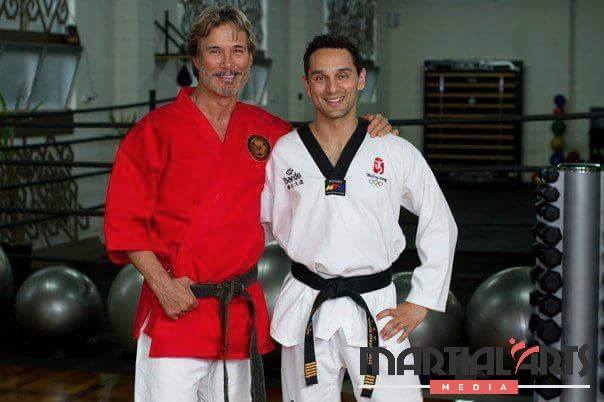
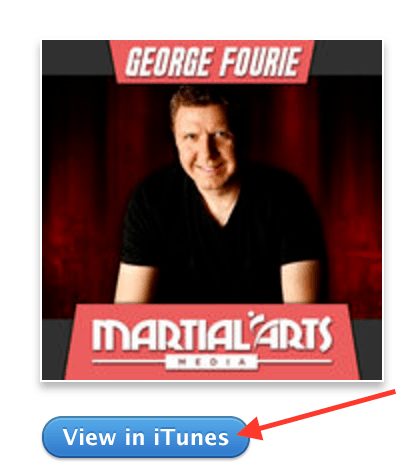
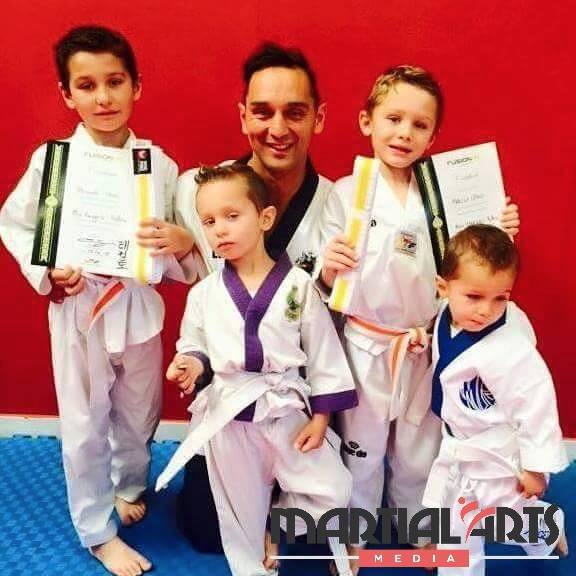 CON
CON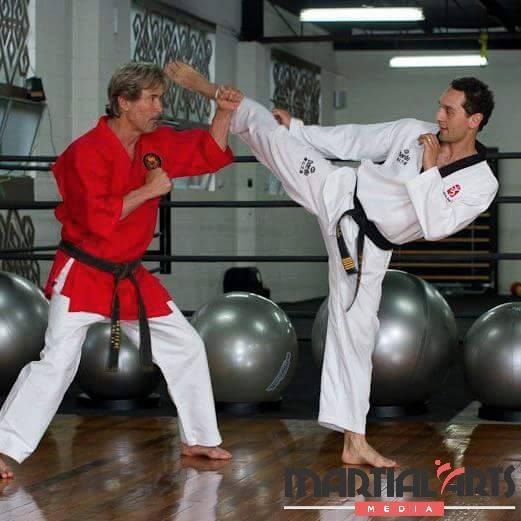
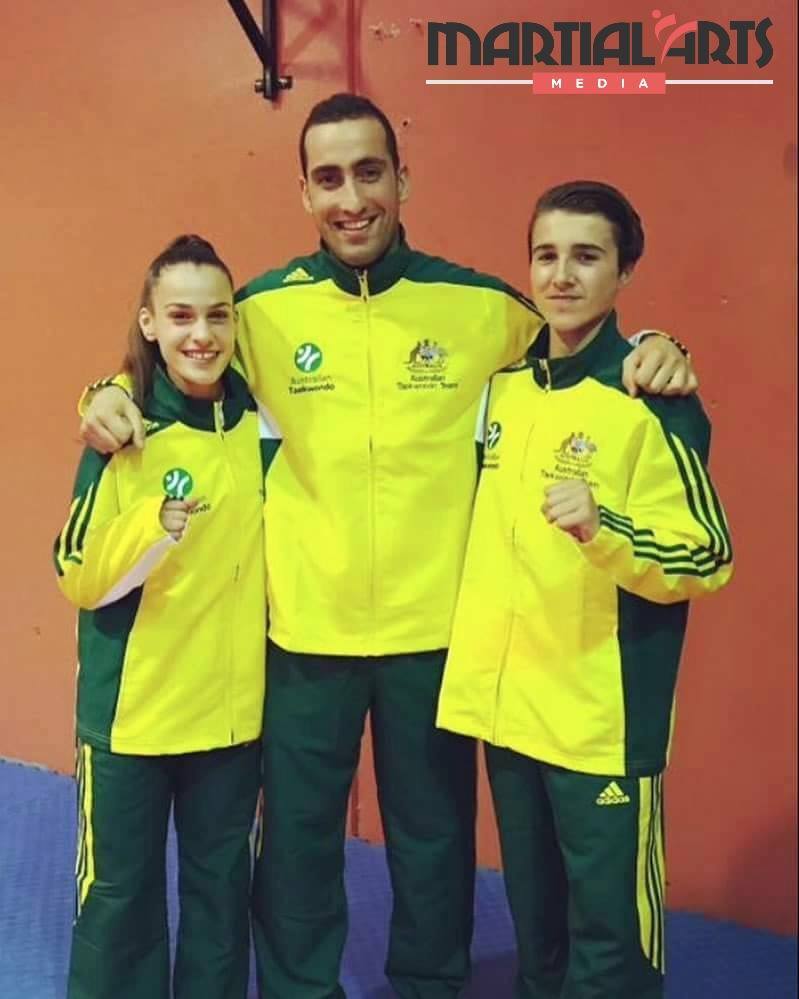 CON
CON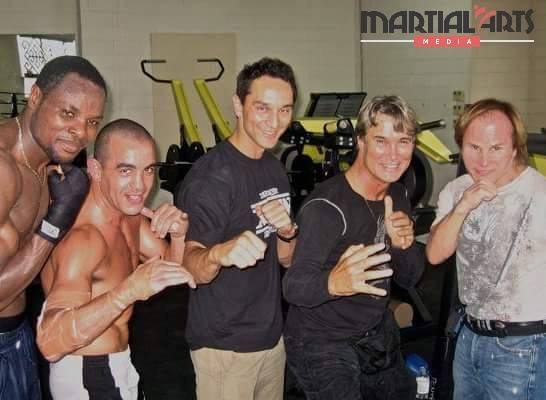 CON
CON

